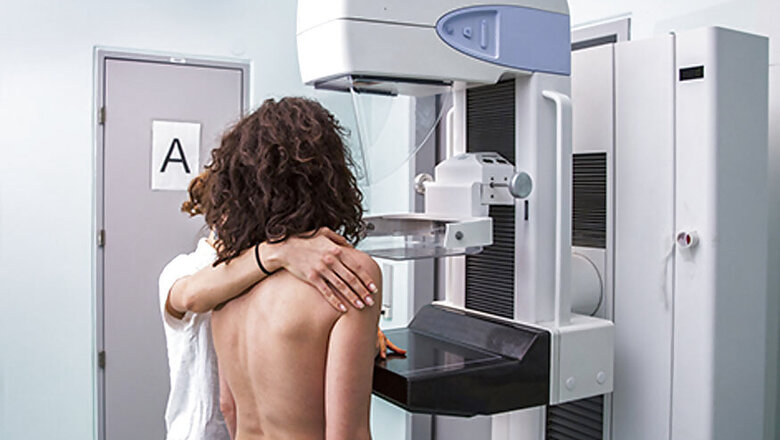
views
Immunotherapy is less invasive than chemotherapy in the treatment of cancer, notably in its most advanced forms, offering new hope to women with breast cancer. Ahead of Breast Cancer Awareness Month in October, here is a brief overview of this new technology, which, like a vaccine, involves making the immune system recognize cancer cells in order to fight them.
Can the immune system be taught to fight cancer? This therapeutic approach is high up on the agenda of oncology researchers, who are stepping up the pace of research on this promising form of treatment in a bid to save as many lives as possible.
At the World Cancer Congress in Chicago, USA, in June, a team from France's Institut Gustave Roussy in Villejuif, on the outskirts of Paris, presented a new immunotherapy treatment called nivomulab, aimed at treating so-called "female" cancers such as vaginal and cervical cancer. In 70% of patients, the treatment was found to stabilize the disease. What's more, cancer was even found to regress in 20% of women treated.
While immunotherapy also offers good results, validated in clinical trials, for melanoma skin cancer, kidney cancer and lung cancer, scientists now have breast cancer treatment in their sights.
Their work notably focuses on aggressive tumors, like triple-negative breast cancers, which account for 15% of breast cancer cases affecting younger women, who aren't yet covered by screening programs.
For this kind of cancer, sustainable clinical responses have been observed in patients in advanced stages of the disease, responding poorly to chemotherapy and when metastasis has developed, explain the researchers.
Scientists now have in their sights new and promising treatments that unlock immune defenses, called "check-points," with compounds such as anti-PLD1 proving particularly interesting.
Building on the growing interest in immunotherapy, France's Institut Curie is opening a center for cancer immunotherapy this fall in order to accelerate research in the field of these new treatments.
The center, which will welcome almost 100 scientists, aims to establish early clinical trials, study combinations of treatments, identify new predictive cancer biomarkers and understand the mechanisms of action involved in immunotherapy treatments, and why some but not all patients respond to this kind of therapy.
Specialists currently estimate that 20% of patients respond to treatment by immunotherapy.


















Comments
0 comment